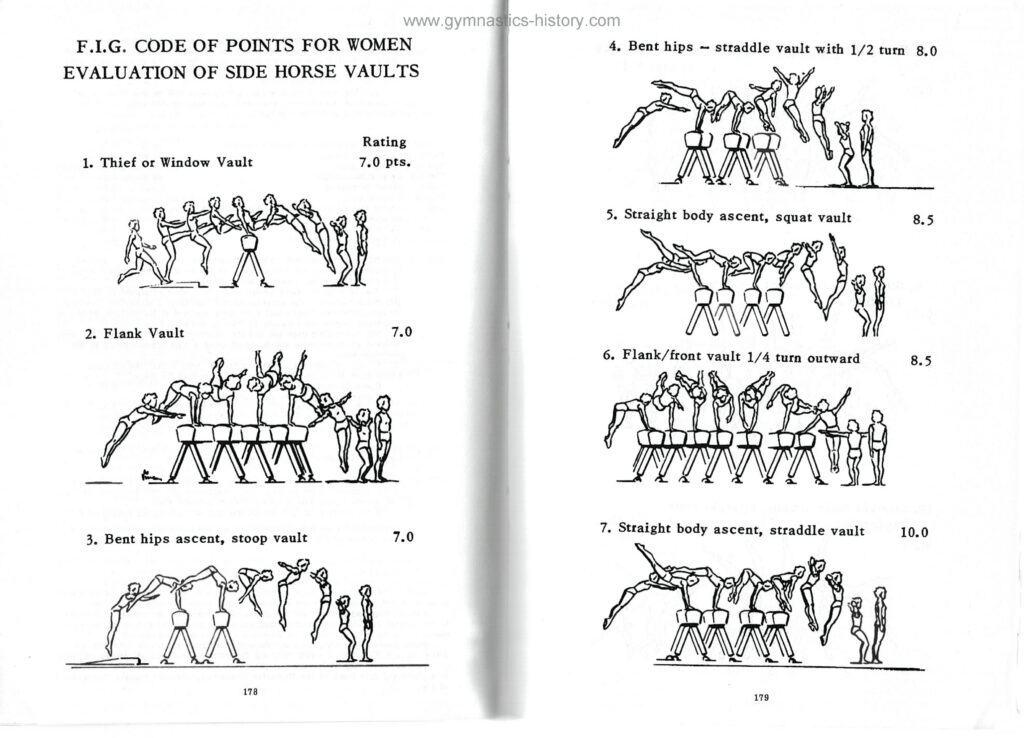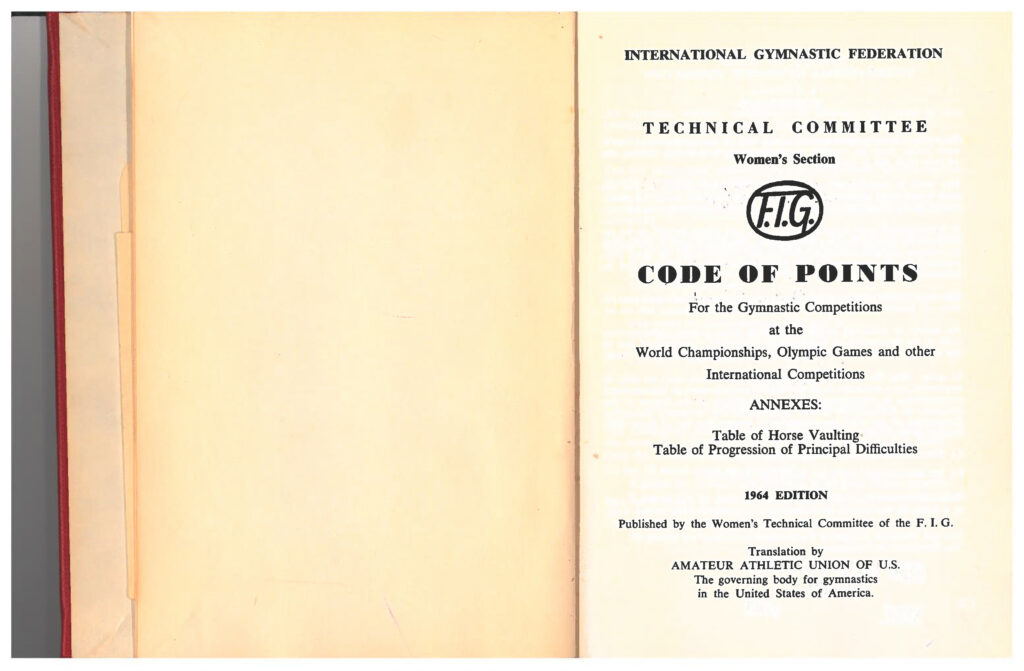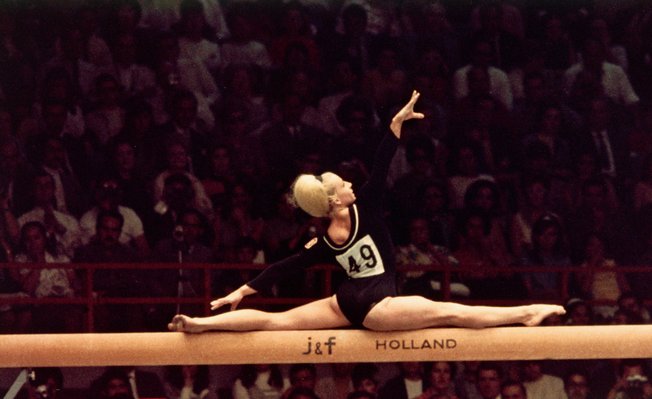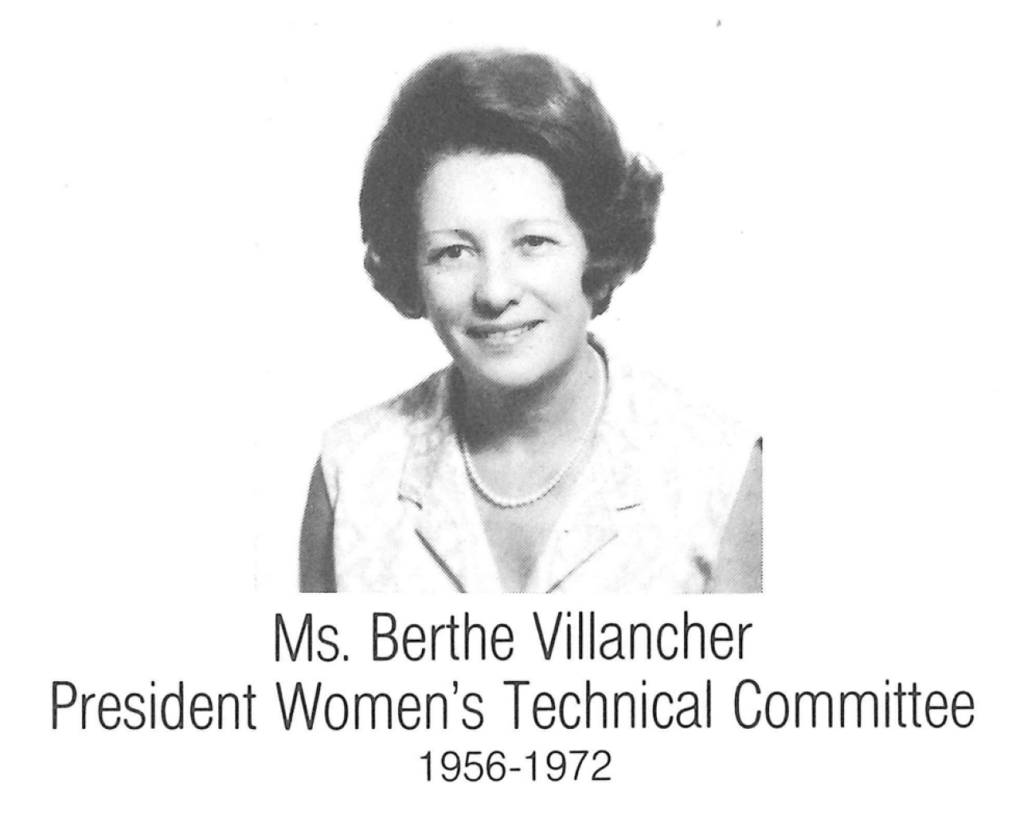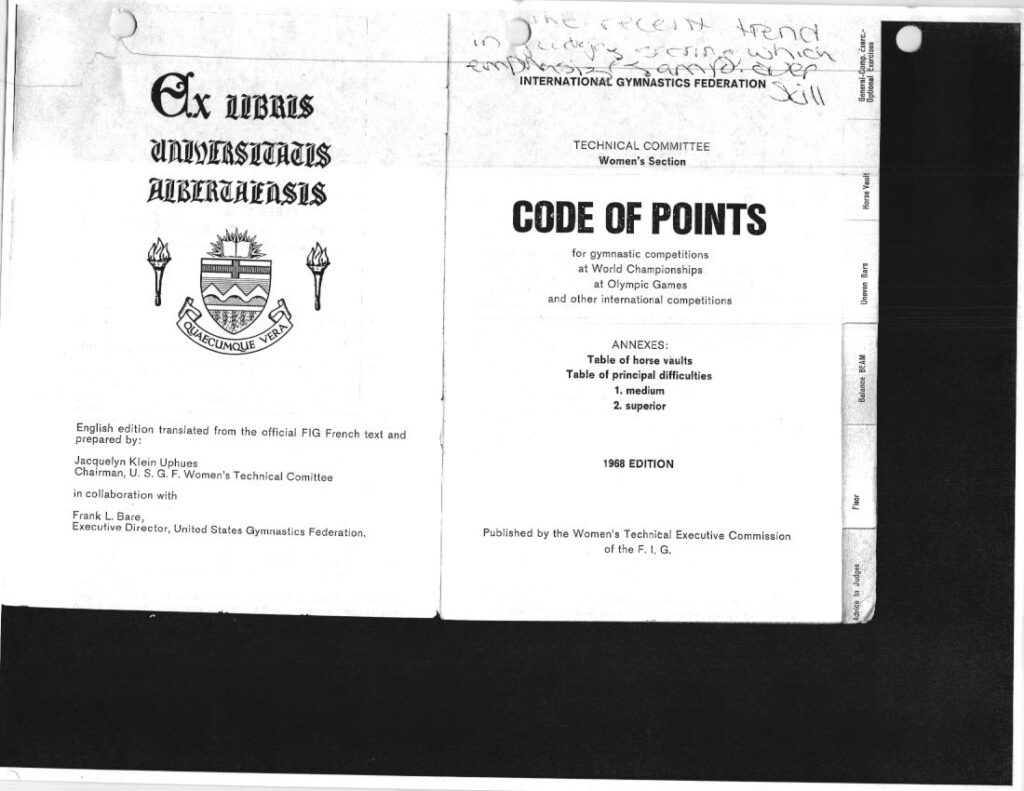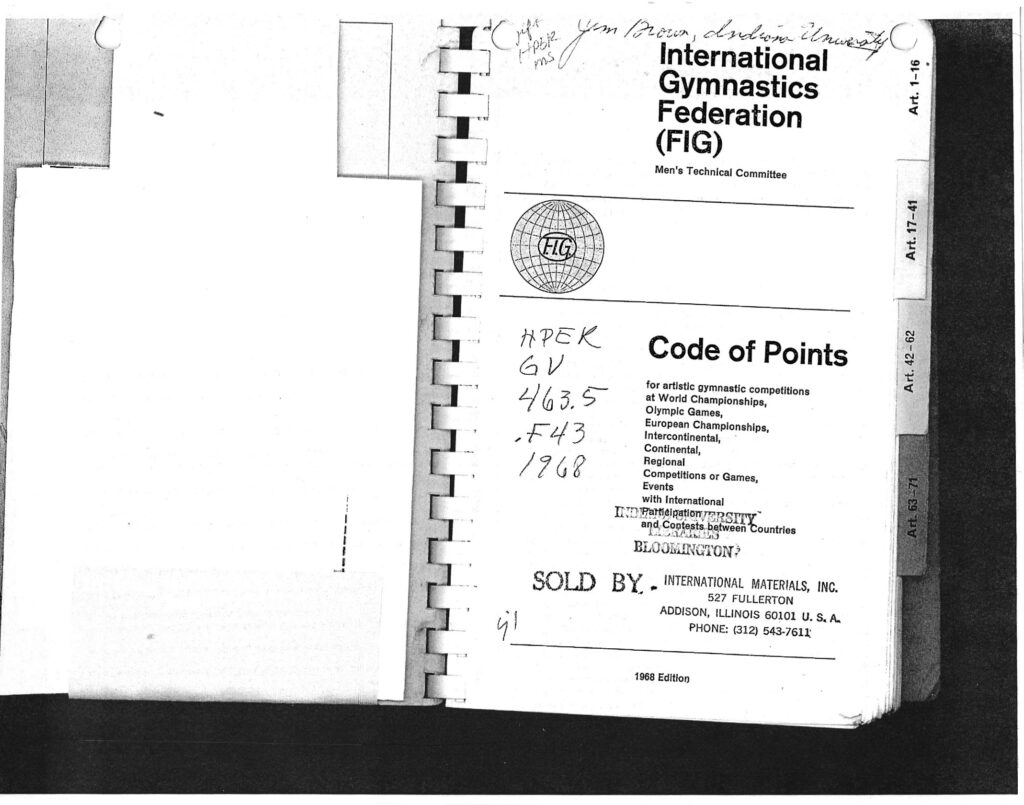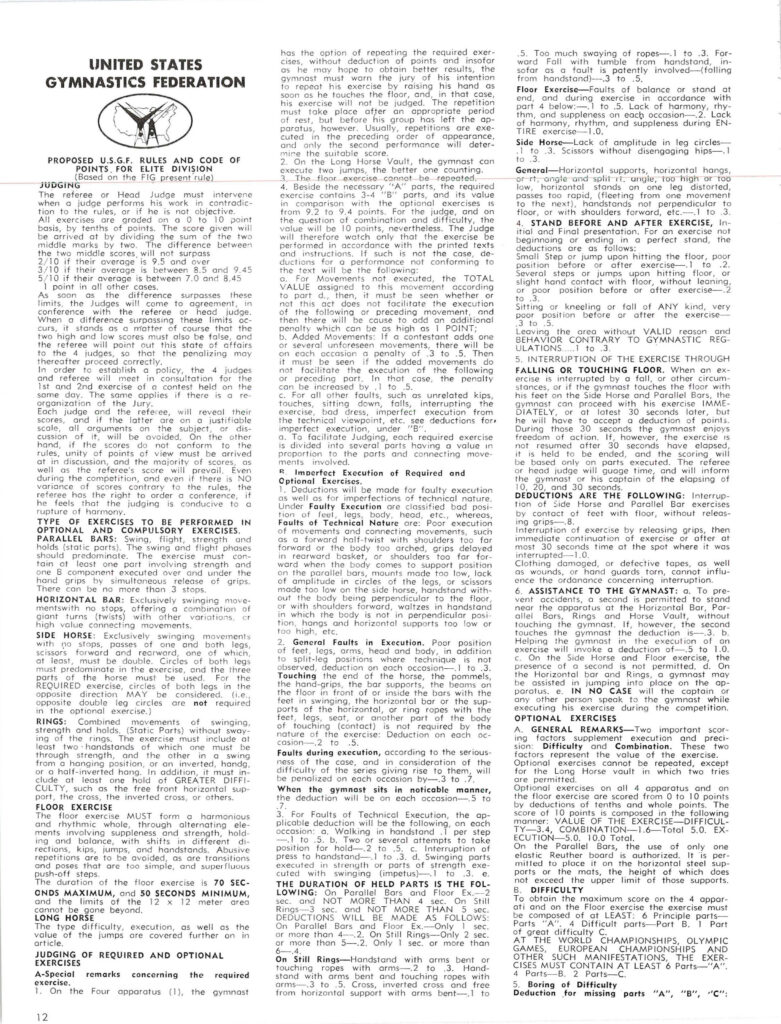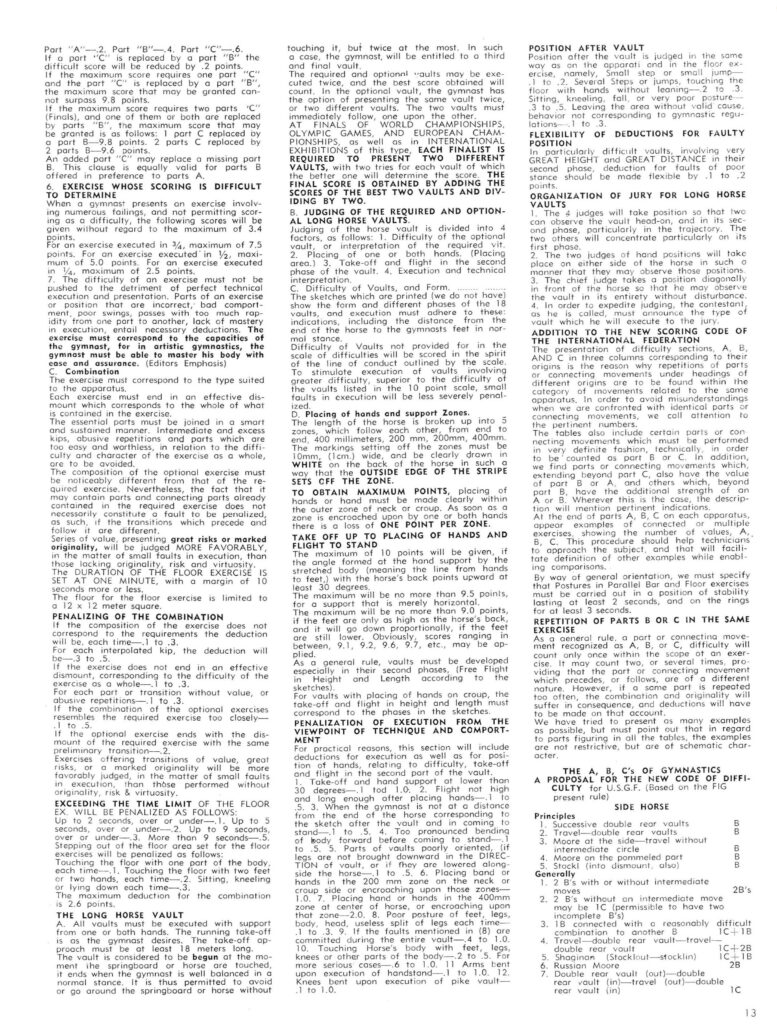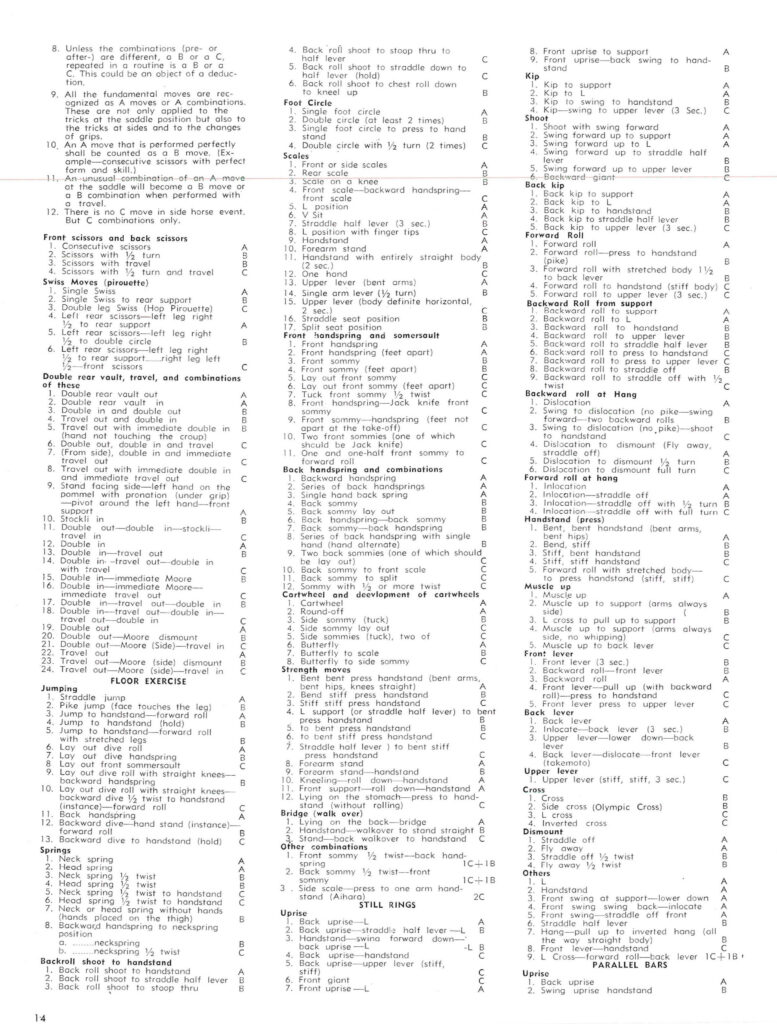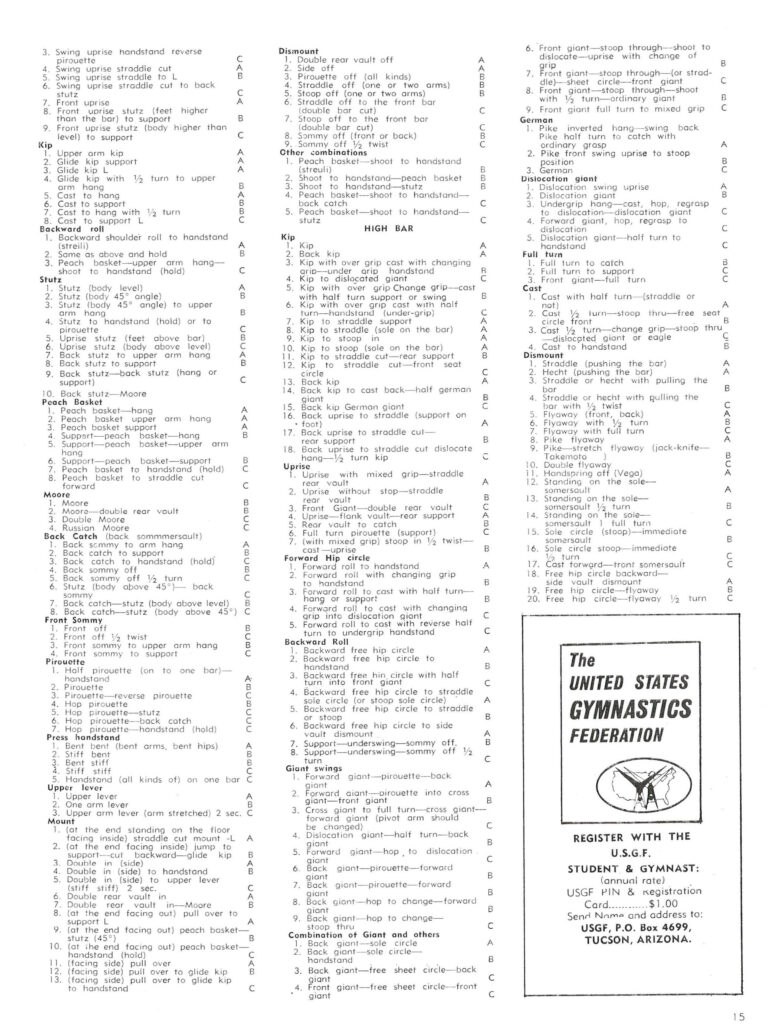In 1949, the Men’s Technical Committee published its first Code of Points.
Almost 10 years later, in 1958, the Women’s Technical Committee published its first Code of Points.
Of course, women’s gymnastics had rules before this. But this was the first official Code of Points, and as we’ll see, the rules for women’s artistic gymnastics had developed a lot since female gymnasts first competed at the Olympics in 1928.
Let’s take a look at the 1958 Code of Points.
